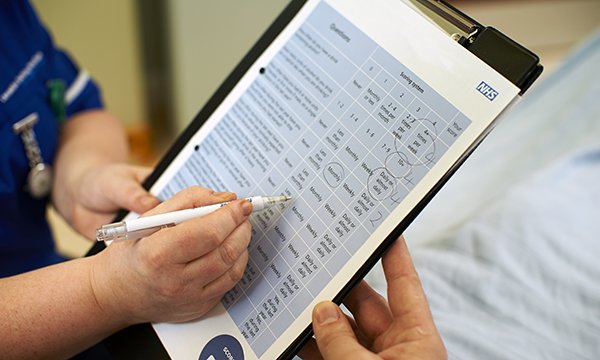Evidence and Practice

Exploring women’s experiences of an inpatient mental health rehabilitation service
Experiences of self-recovery among adults with bipolar disorder: a narrative review
Delirium superimposed on dementia: mental health nurses’ experiences of providing care
Clinical
Exploring women’s experiences of an inpatient mental health rehabilitation service
Why you should read this article: • To recognise that many women who receive inpatient mental healthcare have negative experiences • To update your knowledge of the importance of gender-sensitive and trauma-informed inpatient mental health services for women • To understand women’s experiences of care and support in an NHS mental health rehabilitation service The importance of providing women who experience mental health issues with gender-sensitive and trauma-informed care has been emphasised in research and policy. However, the literature highlights that many women who receive inpatient mental healthcare have negative experiences including restrictive interventions, feeling coerced to take medicines, lack of empathy and re-traumatisation. It is important to continue exploring women’s experiences in inpatient mental health services to determine to what extent the care offered is gender-sensitive and trauma-informed. This article reports on a service evaluation conducted in 2023 at one mental health rehabilitation service in England to explore the experiences of female service users. Six women were interviewed and the data obtained were analysed thematically. Most participants reported positive experiences of the service but there were areas where care could be improved.
Experiences of self-recovery among adults with bipolar disorder: a narrative review
Why you should read this article: • To understand the psychosocial factors that influence recovery in people with bipolar disorder • To read about experiences of self-recovery in people with bipolar disorder • To recognise the shift in management of bipolar disorder towards supporting patients with self-recovery Bipolar disorder is a potentially lifelong and disabling condition characterised by episodes of mania or hypomania and episodes of depressed mood. In recent decades the focus of management has shifted towards supporting patients towards self-recovery. The author of this article conducted a narrative review of the qualitative literature to explore the experiences of self-recovery among adult patients with bipolar disorder. Six themes emerged from the thematic synthesis – relapse prevention, acceptance, social and professional support, lifestyle, psychological therapy and psychoeducation. Understanding the psychosocial factors that influence recovery in bipolar disorder can guide recovery-oriented interventions, potentially leading to enhanced well-being and quality of life for patients.
Delirium superimposed on dementia: mental health nurses’ experiences of providing care
Knowing patients cannot be reduced to a numerical tool and an integrated approach is needed
Exploring the role of social media in eating disorders in adolescents: a scoping review
Social media use in this age group has been shown to have both protective and adverse effects
Preventing suicide by jumping in public locations: a systematic review of interventions
Interventions to restrict access to means of suicide are correlated with reduced suicide rates
Epilepsy: emotional and psychological effects and relationship with mental illness
Epilepsy and mental health services should work together to provide coordinated care
CPD articles
Supporting people with co-occurring mental health issues, alcohol and drug use
Enhance your assessment skills when working with such service users
Mental health tribunals: supporting patients and protecting the therapeutic relationship
An overview of the process and advice on displaying transparency and acting as the patient’s advocate
Eating disorders: how to recognise, respond and promote recovery
Assessment methods and therapeutic approaches used for anorexia nervosa and bulimia nervosa
Working effectively with people who have received a diagnosis of personality disorder
A critique of this diagnosis and interventions, care and approaches that may be beneficial
Identifying and supporting men who experience paternal postnatal depression
Nurses can help new fathers by being alert symptoms and signposting them to further support if needed
Compassionate care for people who self-harm: principles, tools and techniques
Learn about tools that can be used to provide compassionate care such as urge surfing
Practice question
What is the therapeutic relationship in mental health practice?
A therapeutic relationship between nurse and service user is vital for good outcomes
Mental illness: why is cardiometabolic risk monitoring important?
Tips for nurses on monitoring cardiometabolic risk in people taking antipsychotic medications
Severe mental illness: why is physical health monitoring so vital?
Physical health monitoring helps nurses identify key risk factors in service users
The relevance of practitioners providing trauma-informed care for rough sleepers
The symptoms of PTSD for rough sleepers and adopting a trauma-informed approach to care














